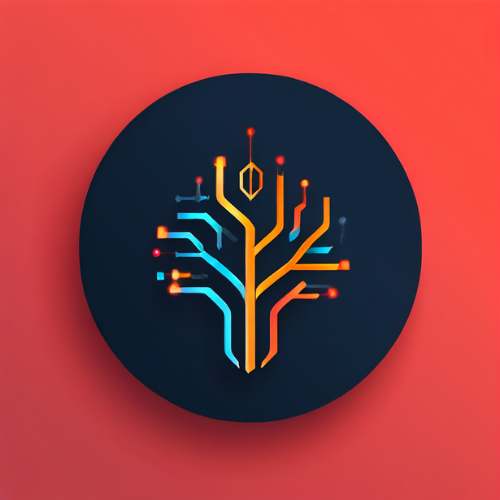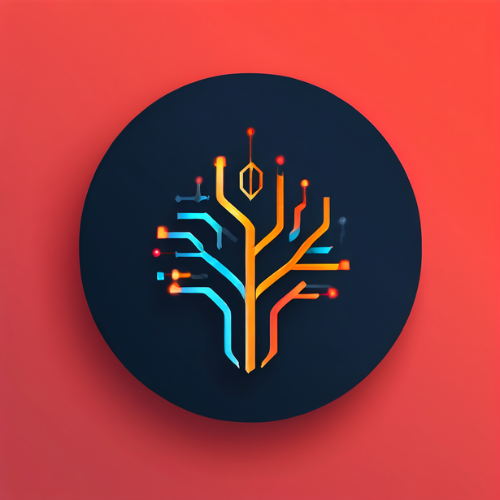Decoding Networks: The Key to Understanding Blockchains
"Empowering Your Digital Identity: Navigating the Shift from Traditional Networks to Blockchain Freedom"
Thank you for subscribing
Thank you for subscribing
Thank you for subscribing



Have you ever pondered over the question - why are blockchains important? Or, even more fundamentally, what are blockchains? If you have found yourself tangled in these intricate concepts, you're not alone. The world of blockchains can often seem like a complex labyrinth to navigate. As I delved deeper into this realm, I realized the importance of making this knowledge accessible and understandable to everyone. To do this, I turned to a book by Chris Dixon, "Read Write Own," which served as a great starting point. A good way to understand blockchains lies in understanding networks.
Now, it's not my intention to oversimplify the intricate discussions by experts in the field like Chris Dixon who have addressed this subject with finesse. However, let's attempt to unravel this based on my understanding and perception. In our fast-paced world, we often use technology without questioning the 'why', 'what', and 'where'. We turn on our devices, log in, and do what we need to do. This, I believe, is partly due to convenience and partly due to the freemium problem - we love freebies, even if it means giving away our data.
Imagine a world where you could move your data, history, contacts, etc., without any barriers. While this is possible today, it often seems like a hassle to many. Like the time when I had to move to another provider because Skiff, my preferred platform for email, document storage, and calendar, joined Notion. Interestingly, I'm using Notion to write this post. However, since Skiff allowed me to use my domain, I simply found a similar service, Proton, and moved my domain, email addresses, etc. The best part? I didn't have to worry about notifying my contacts about the move. All remained the same, thanks to the value brought to us by email and web networks.
On the flip side, corporate networks are a different ball game. While they are more convenient and offer a wide array of tools, you don't own anything. Your handle can change, your email address belongs to them, and even cancelling is a hassle. Here's my advice - get your own domain and find a provider like Proton. Every time you sign up for a new service, resist the temptation to log in with Google, Apple, or Microsoft, and use your own email. It's time to cut the cord of dependency.
Enter blockchain networks. They are the best of both worlds. They allow you to own your identity and take it everywhere, and also enable those who support these networks to compete with Corporate networks. I can use my Polygon and Ethereum domains to build my online reputation and digital footprint. As technology evolves, and zK technology becomes mainstream, I will be able to control my data, what I share, and with whom. I might even be able to monetize my data, if I wish. While we are not there yet, as technology advances, we will get there soon.
We must understand networks well, as they serve as the foundation for building a new and better internet. Let's dive a bit deeper into each of them:
Imagine the city's road network: vast, interconnected, and governed by a set of traffic rules and signs. This is akin to protocol networks in the digital realm. Just as roads allow cars to navigate from point A to point B seamlessly, protocol networks like email and the web enable the smooth flow of information across the internet. The Simple Mail Transfer Protocol (SMTP) for emails and HTTP/HTTPS for web browsing are the digital equivalents of traffic rules, ensuring that data packets reach their destination efficiently and securely. These networks are open for all to use, much like public roads, promoting freedom and data portability. You can switch your email provider or web hosting service and still retain your digital identity, akin to moving to a new city but still driving the same car.
Now, consider a gated community: secure, well-maintained, but with access controlled by the community's administration. Corporate networks, spearheaded by tech giants like Facebook and Google, are the digital equivalents of these enclosed spaces. They offer a seamless and integrated user experience, from personalized news feeds on social media to highly targeted advertising. However, this comes with a trade-off: less freedom and ownership over your digital content and interactions. In these networks, you're playing by the rules set by the corporations, which dictate how your data is used and shared, much like living in a gated community where the homeowners' association decides the color of your house.
Finally, envision a large, open community park. It's a space where anyone is welcome, contributions are valued, and the community collectively decides on its use and upkeep. This is the essence of blockchain networks. They merge the openness of protocol networks with the ability to raise funds and foster innovation, akin to corporate networks, but without the central control. Blockchain networks are decentralized and permissionless, meaning anyone can participate and contribute. They offer a new way of managing digital interactions, where users have ownership and control over their data. Think of blockchain as the digital community park where everyone has a say, and the value created benefits the entire community.
As we navigate the digital landscape, it's clear that blockchain networks offer a beacon of hope for a more open, equitable, and user-empowered future. They challenge the status quo, proposing an alternative where the digital infrastructure is built on the principles of openness, interoperability, and user sovereignty. In this evolving digital ecosystem, understanding the role and potential of each network type is crucial for anyone looking to make informed decisions about their digital presence and participation.
To wrap up, understanding networks is the first step to understanding blockchains. Protocol networks like email and web-enable the smooth flow of information, much like public roads. Corporate networks build gated communities, offering services and convenience but at the cost of control and privacy. And then there are blockchain networks, like a community park, that are open and owned by the community.
So, next time you're navigating the digital world, remember these analogies. They not only simplify complex concepts but also highlight the importance of choosing the right path in our digital journey—one that aligns with our values of openness, freedom, and community.